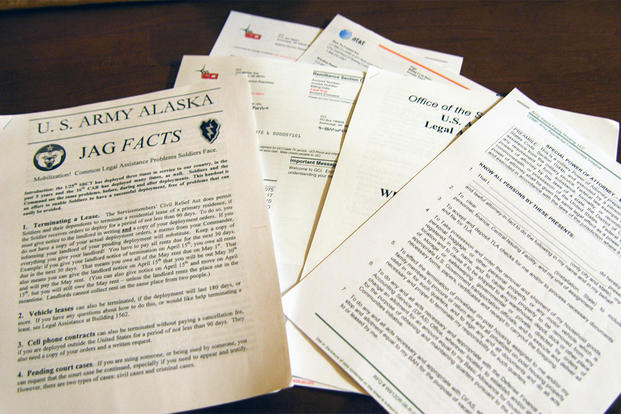A service member's military retired pay can be a valuable asset in a divorce, legal separation or dissolution of marriage.
In 1982 Congress passed the Uniformed Services Former Spouse Protection Act, which allows state courts to treat disposable retired pay either as property solely of the member, or as property of the member and his spouse in accordance with the laws of the state court.
Contrary to popular belief, there is no "magic formula" contained in the act to determine the appropriate division of retired pay. A state court can divide retired pay in any way it chooses (subject to the laws of that state). All 50 states treat military pension as marital or community property.
One of the popular misconceptions about military retired pay is that it is only divisible if the marriage lasted at least 10 years. A state court can award a share of the military retired pay to a former spouse of military member even though the marriage lasted less than a year.
However, in order for the Department of Defense to make direct payments of a military member's retired pay to the former spouse, the former spouse must have been married to the military member for a period of at least 10 years, with at least 10 years of the marriage overlapping a period of military service creditable to retired pay.
Also, direct payments will not be made for division of retired pay in excess of 50 percent or 65 percent if alimony or child support is paid in addition to division of retired pay. Disability pay is not subject to division as property but it is subject to garnishment for alimony or child support.
One very important provision of the USFSPA is that in order for a state court to be allowed to divide member's retired pay, the court must have jurisdiction over the member by:
-- His/her residence, other than because of military assignment, in the territorial jurisdiction of the court;
-- His/her domicile in the territorial jurisdiction of the court; or
-- His/her consent to the jurisdiction of the court.
For example, if John Smith is stationed in Ohio, but claims Nebraska as his legal domicile and if his spouse files for divorce in Ohio, the court would not be allowed to divide John's military retired pay unless John consents to the jurisdiction of the court.
In addition to a share of the military retired pay, the former spouse has a right to receive certain military benefits so long as he/she meets the criteria. As the benefits are statutory entitlements, they are automatic and not subject to negotiation or deviation by a divorce court and the member cannot confiscate the spouse’s ID card, or otherwise suspend the spouse's military privileges.
Former spouses will retain all military benefits and privileges, including medical, commissary, military exchanges, if he or she was married to the member at least 20 years, the member had at least 20 years of creditable service, and there was at least a 20-year overlap between the marriage and the military service.
If there is less than 20 but at least 15 years of overlap, the former spouse will be entitled to one year of transitional medical benefits only. Medical benefits are suspended while the former spouse is covered by an employer-sponsored health care plan and will terminate upon the former spouse's remarriage.





















